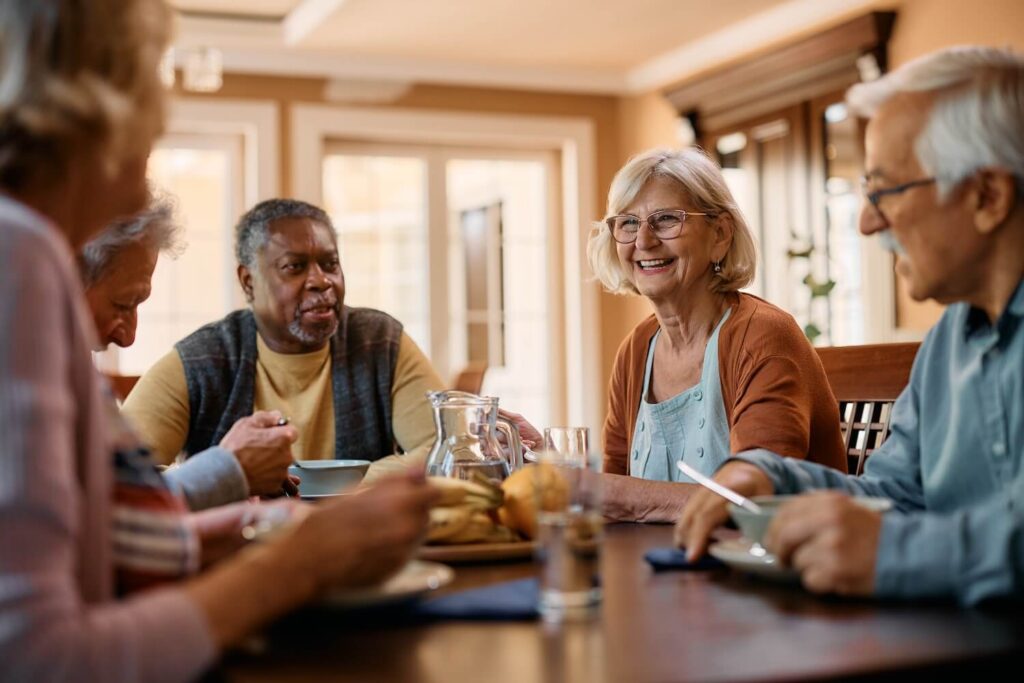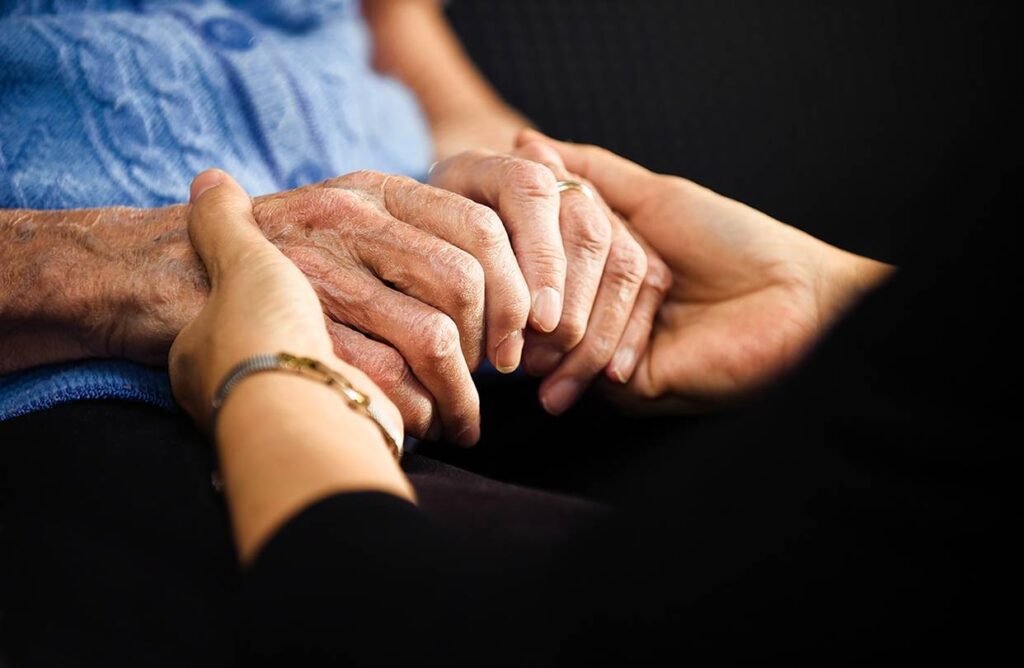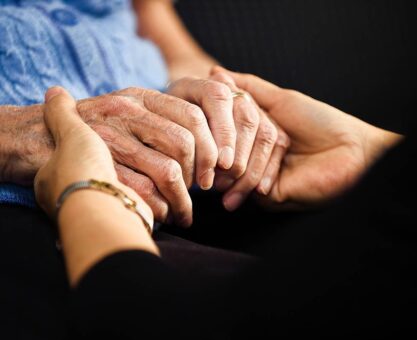Family care at home: The Power of Family Connections
Family care at home is the foundation of our lives, a source of love, support, and shared history. As loved ones age or face health challenges, preserving these deep-rooted bonds becomes even more important. Family care at home offers a unique opportunity to nurture family connections, allowing seniors to stay close to their loved ones while receiving personalized care in the comfort of their own home.
Investing in home care isn’t just about meeting practical needs; it’s about honoring a lifetime of memories, strengthening relationships, and ensuring seniors feel valued and connected. Let’s explore how home care helps preserve family bonds, supports intergenerational relationships, and allows love and legacy to flourish.
1. The Emotional Value of Staying Connected
Fostering Meaningful Interactions
Home care creates an environment where seniors can interact with their family members on their own terms, without the limitations of facility schedules or visiting hours. Being able to share meals, celebrate birthdays, or simply chat in familiar surroundings strengthens emotional ties.
- Example: Grandchildren can visit after school, sharing stories and laughter, while a caregiver handles practical tasks like meal preparation or medication management.
Reducing Loneliness and Isolation
According to the National Institute on Aging, social isolation can increase the risk of cognitive decline, heart disease, and depression. Home care helps combat this by allowing seniors to remain socially active within their family network and local community.
- Case Study: A senior with mobility issues who can no longer drive may feel isolated, but with a caregiver providing transportation, they can attend church services, visit friends, or join family outings, maintaining vital social connections.
Preserving a Sense of Belonging
Staying at home allows seniors to remain an integral part of family life, continuing to contribute in meaningful ways. They can share wisdom, offer emotional support, and participate in traditions, reinforcing their role within the family.

2. Strengthening Intergenerational Relationships
Passing Down Family Stories and Traditions
Seniors are living archives of family history. Home care ensures they have the time, space, and support to share stories, recipes, and life lessons with younger generations, preserving family traditions for years to come.
- Example: A caregiver might assist a grandmother in baking her famous holiday cookies with her grandchildren, turning a simple activity into a treasured memory.
Teaching Compassion and Responsibility
When children and teens witness caregiving up close, they learn valuable life lessons about empathy, patience, and the importance of caring for others. Home care provides opportunities for younger family members to engage with aging loved ones in meaningful ways.
- Expert Insight: Dr. Sarah Langston, a family psychologist, explains, “Interacting with elderly relatives teaches children emotional intelligence. It helps them understand aging as a natural part of life and fosters a deep appreciation for family ties.”
Creating Shared Experiences
Caregivers can facilitate activities that bring generations together, from board games and gardening to looking through old photo albums. These shared moments create lasting memories and bridge generational gaps.
- Example: A caregiver might help set up a weekly movie night where a grandfather can introduce his grandchildren to classic films from his youth.
3. Relieving Family Stress and Strengthening Relationships
Preventing Caregiver Burnout
Caring for an aging loved one can be physically and emotionally draining, leading to stress and tension within the family. Home care relieves some of this burden, allowing family members to focus on enjoying quality time with their loved one rather than being overwhelmed by caregiving tasks.
- Statistical Insight: According to the Family Caregiver Alliance, 70% of family caregivers experience symptoms of depression and anxiety. Hiring professional help can ease this emotional strain, preserving harmony within the family.
Improving Family Dynamics
Without the stress of full-time caregiving, family interactions can become more positive and fulfilling. Instead of arguing over care decisions or feeling guilty about personal limitations, family members can collaborate with caregivers to ensure their loved one’s needs are met.
- Example: Siblings who were arguing over their mother’s care found peace of mind by hiring a home care provider. This allowed them to divide responsibilities more evenly, reducing conflict and bringing them closer together.
Offering Peace of Mind
Knowing that a loved one is in good hands brings immeasurable relief. Family members can rest easy, knowing a trained caregiver is there to provide immediate assistance, monitor health changes, and coordinate with medical professionals.
- Expert Insight: Dr. Maria Chen, a geriatric care specialist, notes, “Home care acts as a safety net, allowing families to balance their own lives while ensuring their loved ones receive attentive, personalized care.”

Doctors Approach to End-of-Life Conversations
4. Honoring a Lifetime of Love and Legacy
Respecting Individual Wishes
Many seniors express a desire to age in place, to remain in the home they built, surrounded by cherished memories. Home care respects this wish, allowing seniors to stay in familiar surroundings while receiving the support they need.
- Example: A couple married for 60 years chose home care so they could stay together in their family home, where every room held memories of their life’s journey.
Celebrating Life and Milestones
Home care makes it easier for seniors to participate in family celebrations, from birthday parties to weddings. Caregivers can assist with transportation, grooming, and even event participation, ensuring seniors don’t miss out on life’s special moments.
- Case Study: A home caregiver helped an 85-year-old grandmother attend her granddaughter’s graduation by arranging transportation, assisting with mobility, and staying nearby to provide discreet support throughout the event.
Creating a Legacy of Love
When families choose home care, they’re creating a legacy of love and respect. They’re showing their loved ones that they matter and that their comfort, dignity, and emotional well-being are a priority.
- Example: A son who arranges home care for his aging father isn’t just fulfilling a duty; he’s honoring a lifetime of sacrifice and love, ensuring his father’s golden years are filled with joy and connection.
Conclusion: Love That Endures
Home care is more than just a practical solution, it’s a heartfelt act of love that nurtures family bonds, preserves legacies, and celebrates life. By investing in personalized, compassionate care, families can ensure their loved ones remain connected, valued, and deeply cherished.
Choosing home care means choosing to keep love at the center of the caregiving journey. It’s a way to say, “You’re not alone; we’re here for you every step of the way.”
Are you exploring home care for a loved one? Share your thoughts and experiences in the comments. let’s support each other in building a legacy of love and care.








